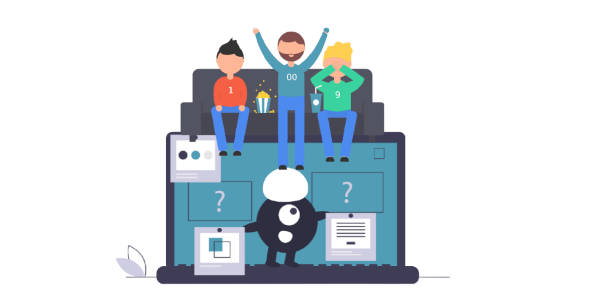[Photo by Fredrick Tendong on Unsplash]
Welcome to This Week in Disruptive Tech, a weekly column and newsletter that focuses on the intersection between tech and society. If you like it, please do share it with your friends and colleagues. If you have any feedback or comments, please add to the Comments section below. If you haven't subscribed already, you can subscribe here. It will hit your inbox every Wednesday.
Waking up to live the dream?

What’s the news: Dream Sports, a Mumbai-based sports technology firm, raised $225 million from a clutch of investors led by Tiger Global Management, TPG, Tech Adjacencies, ChrysCapital, and Footpath Ventures, valuing the firm at $2.5 billion, Techcruch reported.
Why you should care:
- Dream Sports is one of the four Indian unicorns with less than 1,000 employees, and also one of the four that has a valuation of over $4 million per employee (though it's not clear if it's a reliable or useful metric, given how valuations change). In any case, unicorns with fewer employees have to worry less about culture, which could get harder to maintain as an organisation scales up; and worry more about how it's perceived by the society at a time when job creation is seen as a virtue. (Check out the bit on TikTok in Quick Hits below.)
- Its growth reflects the growth of fantasy sports in the country—the number of users has grown from around 2 million in 2016 to 100 million now and is estimated to cross 250 million in the next two years. Dreams Sports, the biggest, has grown from only cricket to kabaddi, hockey, basketball and football. But, the industry also faces regulatory risks. Several Indian states including Assam, Sikkim and Telangana don't allow fantasy sports betting. (In the US, The New York Times ran an investigative series on the 'dark world of fantasy sports and online gambling')
- It raises deeper questions about our relationship to sports. For years, we cheered for teams—watching the games live on the ground, or on-screen. Fantasy sports let users pick up teams for upcoming matches and give points based on how their team performs. It’s unclear if there is skill involved, but there’s money to be won. How will this evolve? Will these virtual teams eventually end up influencing what happens in the real world?
Dig Deeper
- Indian fantasy sports app Dream11’s parent firm raises $225M at over $2.5B valuation – TechCrunch
- The evolving landscape of sports gaming in India - KPMG (pdf)
Facebook and the Law of Amplification

What’s the news: Vice recently reported that Facebook ignored warnings about hate speech in Ethiopia, pushing the country close to a genocide (in a repeat of what happened in Myanmar). A day earlier, Buzzfeed published a story on Sophie Zhang, a Facebook employee who turned down $64k severance, so she could talk about the scope and scale of the damage the social media platform is doing to countries around the world.
Why you should care:
- Anti-Facebook sentiment is at an all-time high: Matt Stoller, the author of Goliath: The 100-Year War Between Monopoly Power and Democracy, tweeted “How many genocides does Mark Zuckerberg get to cause before we decide that Facebook is bad?” Siva Vaidyanathan, who has written thought-provoking books on Google and Facebook, observed, “Once again: The problem with Facebook is NOT Donald Trump. It’s not even America. Facebook is much more dangerous elsewhere."
- The Law of Amplification: Based on his experience of taking technology to society, Kentaro Toyama, cofounder of Microsoft Research Lab in India, and now a professor at the University of Michigan School of Information, came up with this law that says “technology’s primary effect is to amplify human forces.” That’s pretty much what’s happening with Facebook. Even as it helped connect people with interest in discussing Mad comics, systems thinking, Michael Sandel and Nassim Taleb, and amplified their passion and knowledge, it also connected people with prejudices against some groups. The real and virtual can reinforce each other, becoming a vicious cycle. The big question we face today is whether Facebook (and social media in general) is doing more of the latter than the former. Both Facebook and its critics seem to assume that a bunch of engineers, data scientists sitting inside the Facebook campus, have some control. Facebook believes it can fix the problem. Its critics say Facebook, with its greed, perverse incentives, and pernicious business model, won’t fix them. Few are asking if it can, in the first place.
- How will this be resolved: In a thread, Benedict Evans drew parallels with what’s happening today with Facebook and malware. He wrote, “The solution to the malware explosion of 20 years ago was not more scanning or shouting at Microsoft to fix it, but changing the software model. We went to sandboxes—to iOS and ChromeOS—and we went to the cloud.”
Dig Deeper
- Hate speech on Facebook is pushing Ethiopia dangerously close to a genocide - Vice
- “I have blood on my hands”: A whistleblower says Facebook ignored global political manipulation - Buzzfeed
- Why technology alone won't fix schools - The Atlantic
- Benedict Evans’s thread on Facebook - Twitter
Cooperation and contact tracing

What’s the news: Several European countries, including the Czech Republic, Denmark, Germany, Ireland, Italy and Latvia, are working on a project to make their respective coronavirus tracing apps ‘talk’ to one another. Stella Kyriakides, EU commissioner for health and food safety said, “coronavirus tracing and warning apps working across borders can be powerful tools”.
Why you should care:
- It’s a reflection of how we are making some progress—but slow progress—towards getting the basic contact tracing apps right. In the early stages of the pandemic, as we read about early use of tech by countries such as China and South Korea, many thought building the tech will be the easy part. But, it didn't exactly turn out that way. It took the UK several months to develop a contact tracing app (last month, a headline in The Conversation read, England’s new contact tracing app fixes privacy problems – whether it will work is another matter). It might have been slow, but there is no denying we have come some way. Singapore recently launched contact tracing tokens for those who might not have a smartphone. Apple and Google expanded their contact tracing tools, taking the technical burden off government agencies. India too is ironing out some of the early issues around its Aarogya Setu app.
- Contact tracing apps can help even with low adoption. That’s the conclusion of a new study from Oxford University and Google. Even if not everyone has it, these apps can still reduce infections, hospitalisations, and deaths. But that’s not the only view. Pouring over thousands of studies, some researchers in the UK concluded there is no evidence that contact tracing apps work.
- There is no silver bullet. It was evident right from the beginning that to fight this war we needed multiple weapons. Physical distancing, masks (which might even provide immunity according to one recent hypothesis), hand hygiene, tests, contact tracing, treatment protocols, health infrastructure and most importantly, cooperation between government, private sector, and society at large. Even vaccines—whenever they come—won’t solve the problem, unless we solve a host of other issues including manufacturing, logistics, pricing, etc.
Dig Deeper:
- EU announces cross-territory contact-tracing app gateway - Computer Weekly
- Coronavirus tracing apps can save lives even with low adoption rates - MIT Tech Review
- Why contact-tracing apps haven’t slowed Covid-19 in the US - Wired
- Scientists cast doubt on effectiveness of coronavirus contact-tracing apps - Politico
Quick hits
- “TikTok offered to create a new US-based company and add 20,000 jobs in a bid to win over US government support” - Washington Post
- “A study of 3.1 million remote workers in North America, Europe and the Middle East during the pandemic by the US National Bureau of Economic Research found that employees’ working days increased, and they attended more—although shorter—meetings. The report concludes, however, that it was “unclear if this increase in average workday span represents a benefit or drawback to employee wellbeing”. - FT
- Gen. Keith Alexander, a former director of the National Security Agency who served as the public face of US data collection during the Edward Snowden leaks, is joining Amazon’s board. - The Verge
- Walmart said it would run “a pilot project for delivery of grocery and household products through automated drones” in Fayetteville, North Carolina. - NBC
- “No-castling (a variant of the game that disallows castling) has the potential to reset the clock, making creativity and depth of thought more important than just memorizing patterns and spending preparation time pressing the spacebar to get the next computer-engine move.” [Kramnik on rethinking Chess with help from AlphaZero] - Chess.com
Illustrations from Undraw & Canva


